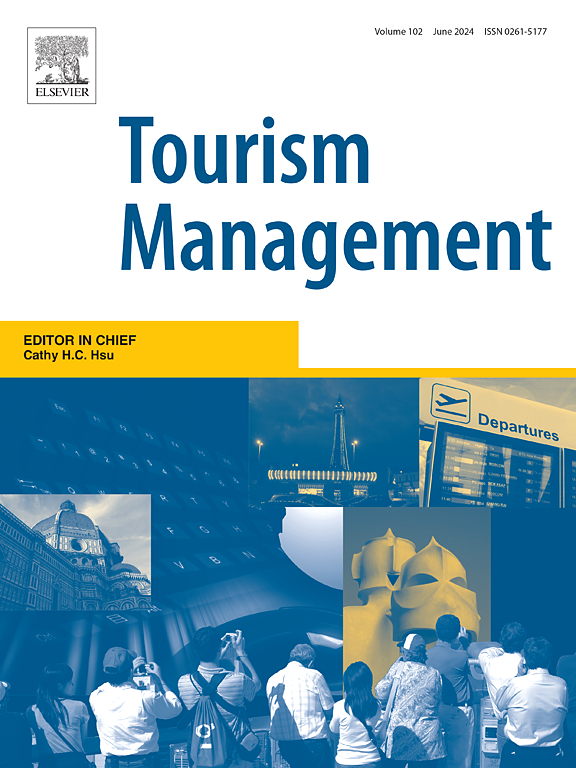旅游管理中负责任的人工智能和人类合作:伦理考虑和身份披露
IF 12.4
1区 管理学
Q1 ENVIRONMENTAL STUDIES
引用次数: 0
摘要
人工智能已经从模仿人类发展到增强甚至超越人类在特定领域的能力。本研究以图灵测试和道德责任理论为基础,通过三项研究,深入探讨了旅游管理中人工智能生成内容的伦理和感知维度。研究1 (N=1400)评估了游客区分人工智能与人类管理反应的能力,并考察了他们的责任感。研究2 (N=700)开发并验证了一个多维尺度来衡量旅游业中负责任的人工智能。研究3 (N=600)使用基于场景的实验来评估AI-human的协作响应,与AI-only或human-only响应相比,如何影响游客的责任归因和满意度,特别是当响应的来源被透明披露时。这项研究推进了负责任的人工智能在旅游管理中的框架,并强调道德开放性,使技术进步与社会福祉保持一致。本文章由计算机程序翻译,如有差异,请以英文原文为准。
Responsible AI and human collaboration in tourism management: Ethical considerations and identity disclosure
Artificial Intelligence has evolved from mimicking to enhancing or even surpassing human capabilities in specialized domains. Building on Turing's test and the theory of moral responsibility, this research delves into the ethical and perceptual dimensions of AI-generated content in tourism management through three studies. Study 1 (N=1400) assesses tourists' ability to distinguish AI-generated from human managerial responses and examines their perceptions of responsibility. Study 2 (N=700) develops and validates a multidimensional scale to measure Responsible AI within the tourism industry. Study 3 (N=600) uses a scenario-based experiment to evaluate how collaborative AI-human responses, compared to AI-only or human-only responses, influence tourists' attributions of responsibility and satisfaction, especially when the origin of the response is transparently disclosed. This research advances frameworks for responsible AI in tourism management and emphasizes ethical openness to align technological advances with societal well-being.
求助全文
通过发布文献求助,成功后即可免费获取论文全文。
去求助
来源期刊

Tourism Management
Multiple-
CiteScore
24.10
自引率
7.90%
发文量
190
审稿时长
45 days
期刊介绍:
Tourism Management, the preeminent scholarly journal, concentrates on the comprehensive management aspects, encompassing planning and policy, within the realm of travel and tourism. Adopting an interdisciplinary perspective, the journal delves into international, national, and regional tourism, addressing various management challenges. Its content mirrors this integrative approach, featuring primary research articles, progress in tourism research, case studies, research notes, discussions on current issues, and book reviews. Emphasizing scholarly rigor, all published papers are expected to contribute to theoretical and/or methodological advancements while offering specific insights relevant to tourism management and policy.
 求助内容:
求助内容: 应助结果提醒方式:
应助结果提醒方式:


